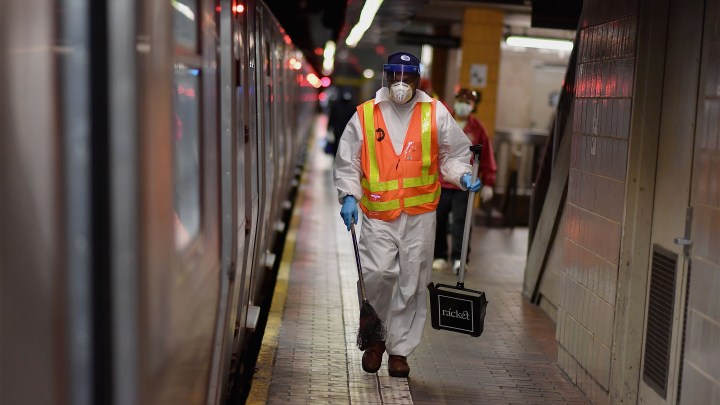
Lack of aid to states could hit Black and women workers hard
Lack of aid to states could hit Black and women workers hard

As Congress continues to hash out plans for the next relief package, it’s not clear whether aid is coming for state and local governments. Their budgets have been hit hard by declining tax revenue since the pandemic shut down parts of the economy and by increased demand for many social services.
States, unlike the federal government, generally can’t run deficits to cover their spending, so without an infusion of federal relief many could see cuts to services and employee layoffs. That would hit some groups especially hard because historically marginalized workers are overrepresented among public employees.
Lee Saunders, president of the American Federation of State, County and Municipal Employees, comes from a long line of public employees.
“My father, my mother were public-sector workers,” he said. “My dad was a city bus driver, and that was a way, back then when I was growing up in Cleveland, for African American families to move into the middle class.”
The mostly union jobs of the public sector provided solid wages, good benefits and a level of job security that was tough to find elsewhere. In the 1960s and ’70s, anti-discrimination and affirmative action policies boosted government employment of women and people of color, a trend that persists today.
“The public sector disproportionately employs workers that have historically had more trouble in the labor market due to issues around discrimination,” said John Schmitt, vice president of the Economic Policy Institute.
Black and women workers are still overrepresented in state and local government jobs. Black workers make up 12% of all employees but 14% of state and local public employees. Women make up slightly less than half of all employees but 60% of state and local government employees.
The sector also serves as an important jobs pipeline for military veterans — 1 in 8 of whom currently work in local public service.
Major job cuts in the sector would affect those populations acutely. We already saw this play out during the Great Recession, when the sector shed almost 800,000 jobs, disproportionately those of Black and especially Black women workers. Those jobs were also slower to come back than jobs in the private sector.
“We never caught up again,” said Sylvia Allegretto, co-chair of the Center on Wage and Employment Dynamics at the University of California, Berkeley. “So we have a huge gap.”
She said the lingering effects of those cuts to jobs and resources in local services like, say, public health departments, are now compounding our health and economic crises.
There’s a lot happening in the world. Through it all, Marketplace is here for you.
You rely on Marketplace to break down the world’s events and tell you how it affects you in a fact-based, approachable way. We rely on your financial support to keep making that possible.
Your donation today powers the independent journalism that you rely on. For just $5/month, you can help sustain Marketplace so we can keep reporting on the things that matter to you.












